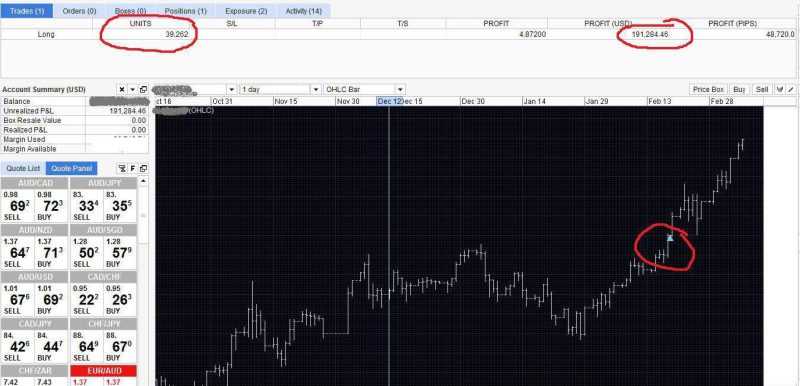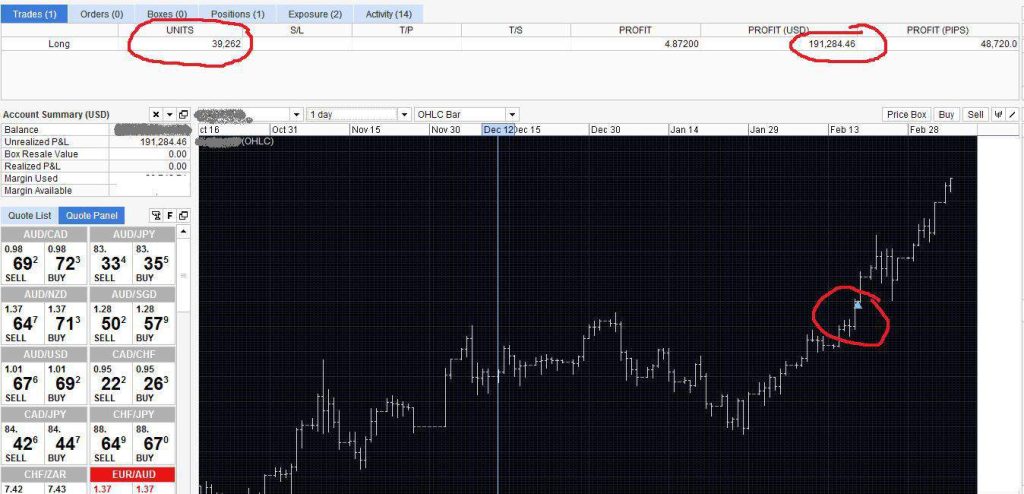
Stock market trading can be a reason for anxiety for potential investors. Let's face it, making a move in the market just when prices are beginning to soar, can look promising, and suddenly things can take a bad turn.
Not surprisingly, a lot of effort goes into researching and analyzing the most opportune time to purchase a stock and the period when traders have to be patient and expect the pullback.

The best idea is to stay away from purchasing a wide stock market index fund. But that doesn't mean traders should abstain from the market, there are always numerous solid investment opportunities for an individual investor.
Inventors have to understand the difference between investing for the long term, and short-term trading activity. Most trading is done in the short-term sphere, where a trader purchases stock to implement a fast turnaround.
They are not trying to hold the stock, and await appreciation that potentially can come over time, this is usually in time frames of years. While the short-term focus is on days, weeks, and rarely months.
For example, day trading is pretty transparent with the range within which it trades and can get perceived as one of the shortest time frames. This can get subdivided into smaller time frames, that go into hours, minutes, and in some cases even seconds. Signaling that the time of day, a trade gets performed can be a crucial factor in a trading strategy.
And when formulating a strategy, investors typically try to answer a few basic questions. What day in the week offers the best prospects to purchase stocks? It also can go in the other direction, and attempt to pinpoint the best day to sell stock? When traders decide on the most opportune dates, they can implement them when buying stocks and building their portfolios.
Let's explore the time trading options that will help navigate the trends and improve profits.
Also Read: Day Trading Options: A Risky Yet Profitable Strategy
Contents
- Moves in the Market Rarely Follow Rules
- Best Time of Day to Buy Stock
- Best Time of Day to Sell Stock
- Best Day of the Week to Buy Stock
- Best Day of the Week to Sell Stock
- Best Day of the Month to Buy Stock
- Best Day of the Month to Sell Stock
- Factors to Consider When Investing
- Is Timing The Stock Market Recommended?
- Conclusion
- FAQs
Moves in the Market Rarely Follow Rules
Although the point is to reveal what period shows the most promise for trading stock, novice investors must understand that if a period shows promise, it doesn't mean it will deliver on it. The suggestions provided are generalizations based on past experiences and analysts, but in no case should they get perceived as official rules that guarantee success.
The best way to look at the recommended time frames is as guidelines that can help orient you in the market.
The market experiences variations in prices because of numerous factors, and that makes it difficult to establish clear rules. There is no fixed schedule for breaking news, plus other unpredictable factors can influence the market.
Identifying the timing patterns in the stock market is only the first step, traders have to work fast and find a method that will enable them to benefit from the patterns. Because of this, returns from exploiting a pattern can get reduced over time.
The starting and concluding hours of a trading session show the most activity. During this period, many trading opportunities appear. But the times in between can also offer profits from a trade of a particular day.
Best Time of Day to Buy Stock
Learning from experienced investors is always a good option. However, experiences are typically subjective, and some traders prefer to stick to tactics that have worked in the past, without analyzing if they are really effective. On the other hand, experience helps locate some valid trends, if the traders have objectively examined past cases.
Veteran traders claim the best time to buy is after the publication of encouraging news, and this is usually during a weekend or before the strike of the opening bell. The morning hours are the period the market rises, and the first two hours can be very productive.
The logic that fuels this idea is that when positive information is publicly available, then most traders will try to act on the data. And what better time than during the opening hours when the prices are most attractive. This tends to change as time goes by, and the market begins to ignore the information.
When the forecasted rally doesn't occur, then a trader will sustain a minimal loss but can intervene fast and get out of the position. And may be able to take a small loss or trade out of their position later during the trading session.
However, this only applies to stocks that get traded under standard market conditions. In cases of extraordinary situations, when significant news gets released, then it can disrupt the market and influence the stock to move up or down during the opening bell. If trades observe this gap in the price of the stock, they should be careful and reevaluate any decision about performing a trade.
Best Time of Day to Sell Stock
When selling stock, most investors think that the opposite rule should get followed, than the one they preach about buying stocks. They advise that the last stock market hours show the most promise.
For example, concerning the trading volume on the New York stock exchange and Nasdaq traded stocks, there is a consensus among traders that the concluding hour of a trading session offers the best prospects.
This philosophy stems from the logic that at this point in the day, the stocks have exhausted their capacity for the day. And are probably going to start to deflate price-wise as the closing of the trading session nears.
As the day ends, most institutions are wrapping up their activities, and there is a limited chance some relevant news will make its way into the market. Without the risk of price shock, traders can decide what stocks they can sell, without exposing themselves to losses.
There is another element that encourages selling during a closing hour, and this is the fact that investors will get focused on offloading outstanding positions. This is standard practice that aims to stay clear from carrying trades overnight. Stocks that perform well in a session may start to decline as the market closes, and day traders begin taking profits.
When traders can precisely predict the activity of profit-taking, then they can short the stocks ahead of day traders. With this move, it's possible to profit from the typical decline as the market closes.
Best Day of the Week to Buy Stock
If the start of the day is the most desirable time to buy stock, then the rationale is that the beginning of the week should also offer favorable conditions. According to most analyses, Monday is the best weekday to buy stock.
It makes sense that the events over the weekend will affect the decisions at the beginning of the workweek, also known as the weekend effect in market theory. The theory states that the market will keep the gains made on Friday and expand on them on Monday.
Yet is worth mentioning that over the previous decade, the weekend effect has mostly disappeared, and the current attitude among traders is that stocks will decline on Mondays. Something very possible if negative news is relevant to a specific stock, which gets published over the weekend.
Best Day of the Week to Sell Stock
The idea that you should do the opposite when selling stocks, then what you do when buying, from a time frame perspective, can be used in cases of days of the week. Meaning Friday is the most opportune day for trading stocks when planning to sell.
Generally, stock markets rally on Friday because traders focus on shorting at this time in an attempt to escape the interest payments that can get accumulated over the weekend. It can also get influenced by the optimism that encouraging news may appear during the weekend.
When planning on buying put options or shorting a stock Friday looks like the best day of the week. But is necessary to time the entry in the position, to occur after the predicted short-covering rally has happened.
Best Day of the Month to Buy Stock
Unlike our previous situation, concerning the day and week tile periods, when we are talking about a bigger picture and take into account the standard 30 day month, then for buying stock, the beginning and end of the month are not the best choices.
Because of adjustments that occur at the start of the month for stock portfolios by hedge and mutual funds, the middle of the month is the best time. More experienced traders know that prices of stock have a habit of declining at a month's midpoint, and this generates purchasing opportunities.
For example, an earnings report of a company or news about a takeover by a different corporation can open opportunities for trading on a particular day of the month. To more effectively time the purchases, learn when a company releases reports relating to earnings and other information that can influence the stock price of the company you are preparing on buying.
Best Day of the Month to Sell Stock
Trading strategies focusing on selling stock, and the best day of the month to do so, typically chose the last trading day of the month.
During the concluding week of a month, managers try to improve the image of their portfolios by purchasing more stocks from companies they already have in their portfolio and have shown positive results. This results in a cascading effect pushing prices up near the month-end.
However, the approach of increasing the inventory of well-performing stocks is only useful to show results on paper, in practice selling the stock when the price is high can generate real profits.
Factors to Consider When Investing
There are several aspects to take into consideration when deciding which stock to buy. Having a clear perspective illuminates the best choices, and this means understanding the crucial factors that influence stock prices.
Prepare a Plan
When investing in the stock market it's important to have clear goals. The plan gets formulated by incorporating the spheres of interest, such as industry sectors that you target for the portfolio, time horizon, and are you planning on making a quick profit or continuing to acquire the specific stock.
Understand Volatility
The value of a stock oscillates in a vertical range. At cretin period it can go up, but it can also decline. The price doesn't follow a specific pattern every stock has its course.
Certain types are more volatile, and discerning the differences makes it possible to adjust a trading strategy. Choose the stocks that best suit the trading preference that is characteristic of you and your tolerance levels for swings in the market.
Diversify the Portfolio
Trading entails constant risks, and the best way to mitigate or reduce the chances of generating losses is to invest in multiple sectors. That way you will balance investments. Compensating for losses from one stock by profits from another. Trying always to stay ahead of bad stocks. Focus on exploring the market and locating investment opportunities.
Factor in Mistakes
If you think every choice you make on the stock market will result in profits, you are fooling yourself. Professional investors know that mistakes happen. And occasionally they will make a investment that can incur losses. When this happens it’s important not to get discouraged, most traders experience failures. If this occurs it can reinforce the belief in spreading out the investments.
Seasonal Effect
There is one pattern that traders can rely on and that is a seasonal effects, that by their nature are predictable. The harvest and Christmas always arrive on the same date, and they influence the prices of certain commodities. Having a trading calendar makes it possible to predict upcoming price fluctuations.
When there is a crash in the stock markets, the market balance gets disrupted and it results in a financial crisis. During the emergence phase of the crash, experienced traders pull out of the markets. Novice investors must consider this effect and factor it into their investment strategies if planning to begin trading.
Is Timing The Stock Market Recommended?
Searching for a shortcut or an insight that will enable traders to beat the system is the point of the concept known among investors as timing the market.
The idea is for traders to hold on to their stocks that are price-wise are trending low, and when there is a spike sell them. This method offers investors the option to make a lot of money.
But the downside is that investors are losing out on potential dividend payments by not playing the long game and reaping potential rewards in the future. However, there is also the frequent trap that many investors fell into by panicking and selling if the price is low, and when it is a high focus on buying the stock. In cases like this traders lose out on significant profits from the upwards curve.
There is something that rarely gets admitted, but it's a fact that nobody can tell you with definitive certainty what the market is going to do. Attempting to be patient and waiting for the perfect moment to invest can be a waste of energy. This was proven true on numerous occasions in the past.
Conclusion
The suggestion we offered for the best day, week or month to buy and sell stocks are exactly that, ideas about time frames that can generate results. Novice traders should not understand them as recommendations that will produce profits.
There are always exceptions to any rule, and market conditions change with news events and political developments.
Research focusing on patterns in the market has verified the perception that most patterns generate consistently abnormal returns, and are typically short-lived. Because investors are not static, they follow the developments and intervene, with appropriate moves that make the markets more efficient, as traders adapt to the patterns.
There are no definitive rules at what times you can trade stocks, and get favorable results, but there are guidelines that can point you in the right direction and prevent traders feel lost. Every market acts differently and is influenced by factors that are hard to predict.
Plenty of traders have found success outside of suggested periods. Sometimes experimenting can generate results but even then it’s crucial to base the investment on relevant information.
Yet analysis signals that market timing patterns produce non-typical high returns are disappeared in a short time. The reason for this is that other investors manage to identify the trend and react by making trades that return the balance, and gain experience to avoid similar patterns.
FAQs
What time of day are stock prices highest?
The patterns that have been observe over the decades indicate that the prices of stocks are highest during the closing hours of the day's trading session.
Is it better to buy stocks at night?
No, stock markets tend to offer the cheapest prices during morning hours, and the stock prices tend to rise during the day, usually picking at the closing of the day.
What is usually the best day to buy stocks?
The start of the week has traditionally been perceived as the best day to purchase stock. After news relating to a specific industry or company has been released over the weekend contributed to the price.

















